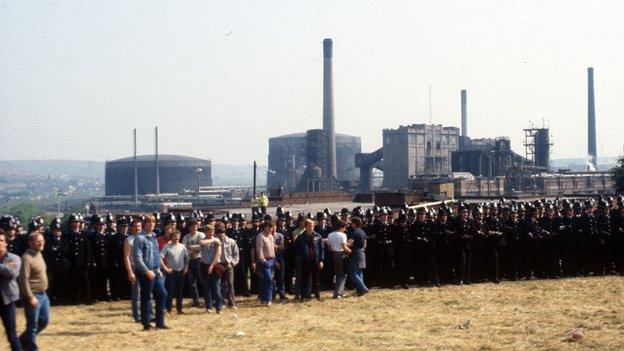Miners' strike policing inquiry 'would have been witch hunt'
- Published
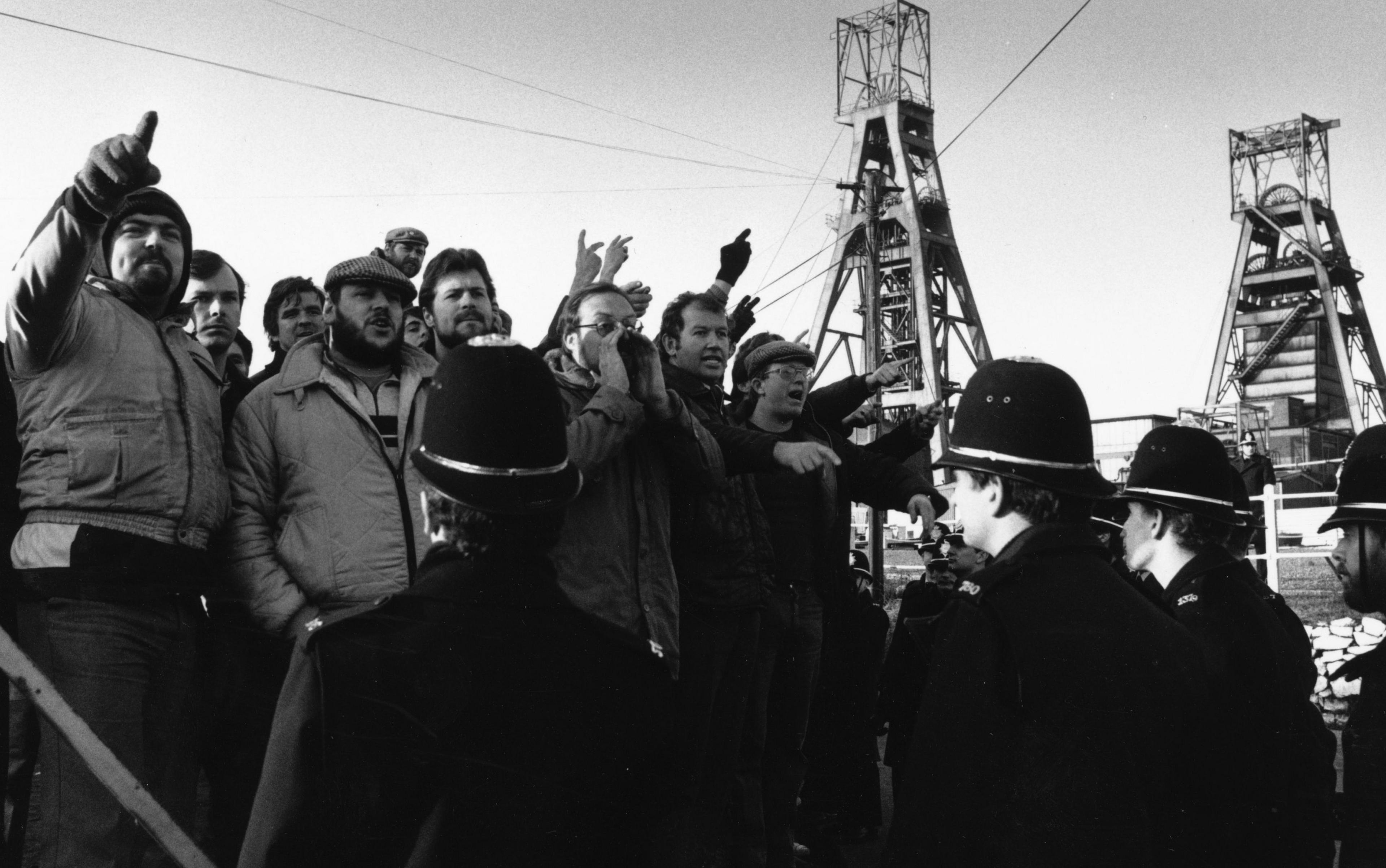
Miners say the release of the documents show successive governments have never wanted a public inquiry
The Thatcher government feared a "witch hunt" if a public inquiry were held into policing of the 1984-5 miners' strike, declassified files show.
Minutes of a meeting in 1985 show Leon Brittan then home secretary, wanted to avoid "any form of enquiry" into policing of the picket lines.
Miners say the files show successive governments "never wanted the truth to come out" over the events.
But the Home Office said there were few lessons to be learnt from 30 years ago.
Eighteen new files have been released to the National Archive, after current Home Secretary Amber Rudd promised that 30 previously unreleased files connected with the strike would be published.

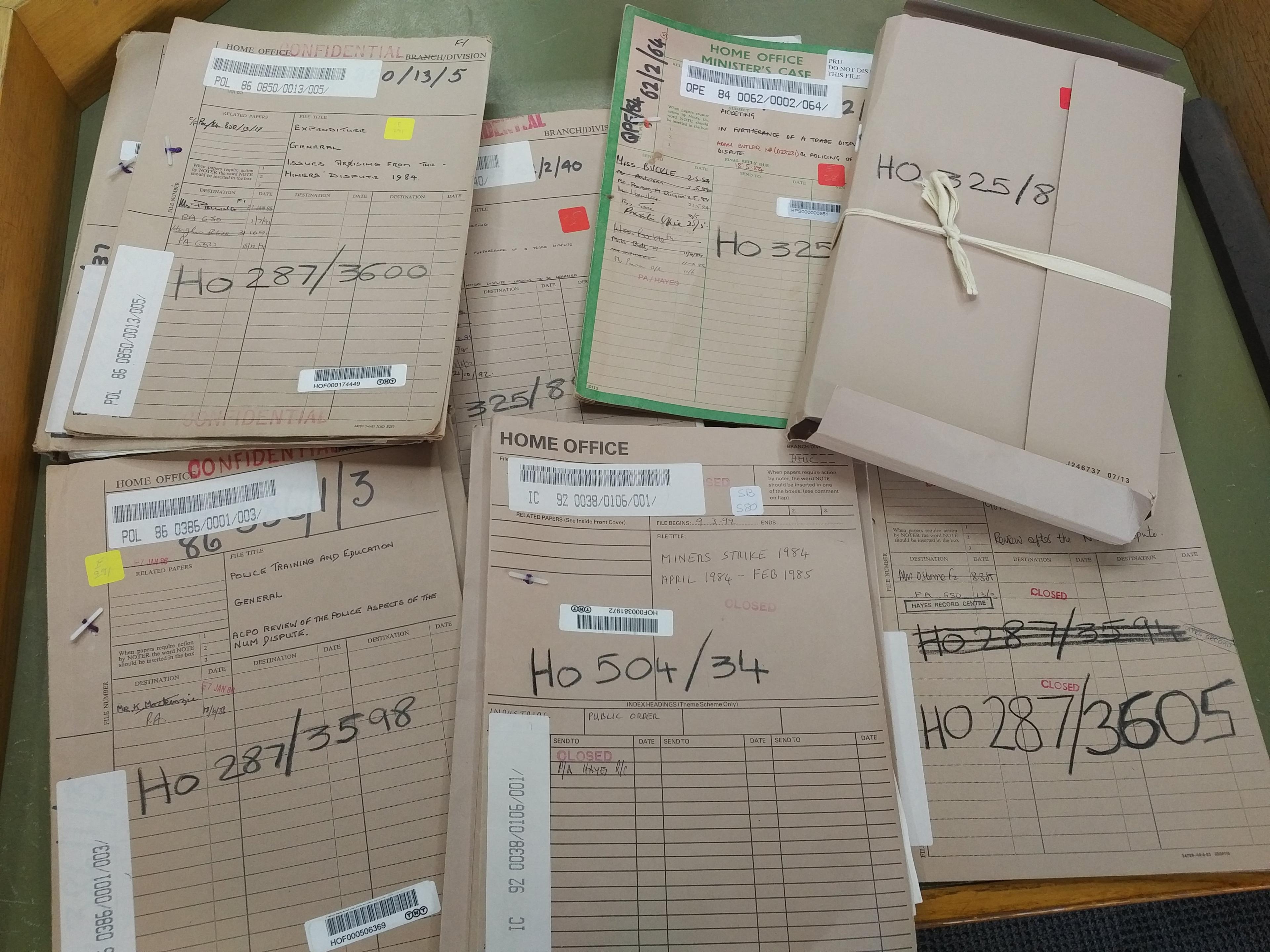
The 18 newly released files have been placed in the National Archive by the Home Office
What the files show:
At a meeting held in 1985, Home Secretary Leon Brittan said he believed the "government should not encourage any form of enquiry into the behaviour of the police", as it would "turn into a witch hunt" with an "anti-police bias"
The Permanent Secretary of the Home Office Sir Brian Cubbon, in 1984 wrote "internal questions" needed to be asked about how "the Home Office relay(s) to the police service the political influence on operational policy which was wanted in the early days of the (miners) dispute"
Local government representatives told the Police Advisory Board in 1986, that the Association of Chief Police Officers, "were concerned less with what actually happened during the miners dispute than with what might happen in the future"
Sir Lawrence Byford, the Chief Inspector of Constabularies in 1984, said it "might have been helpful" if government ministers had shown "greater evidence of neutrality" when it came to supporting the police
South Yorkshire's then chief constable Peter Wright, called on the government to introduce a new offence of "missile throwing", after officers from his force clashed with miners at the Orgreave coking plant

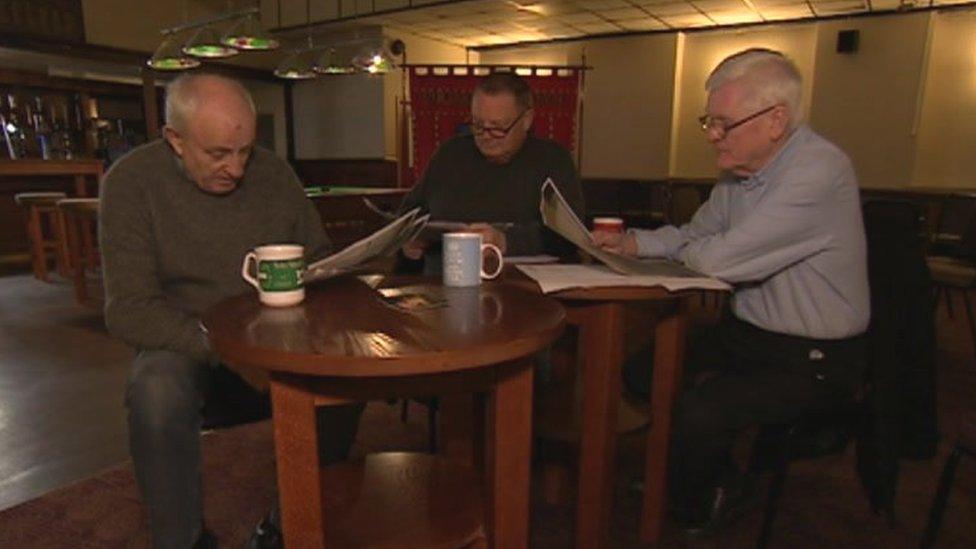
Former miners in Edlington in South Yorkshire say they feel let down no government has ever held a public inquiry
Ex-miner Frank Arrowsmith, who was on the picket line during the year long strike, said "the suspicion is never going to go away that those in Number 10 and the Home Secretary decided to use the police as a battering ram to defeat the miners".
"If a government can get away with burying this you're thinking what's next? But given what they've released so far, I don't think we're going to go away, we are one day going to hold them to account," he added.
The documents do not show evidence to support the claim made by some miners that ministers in the Thatcher government were directly controlling the operational tactics of police forces.
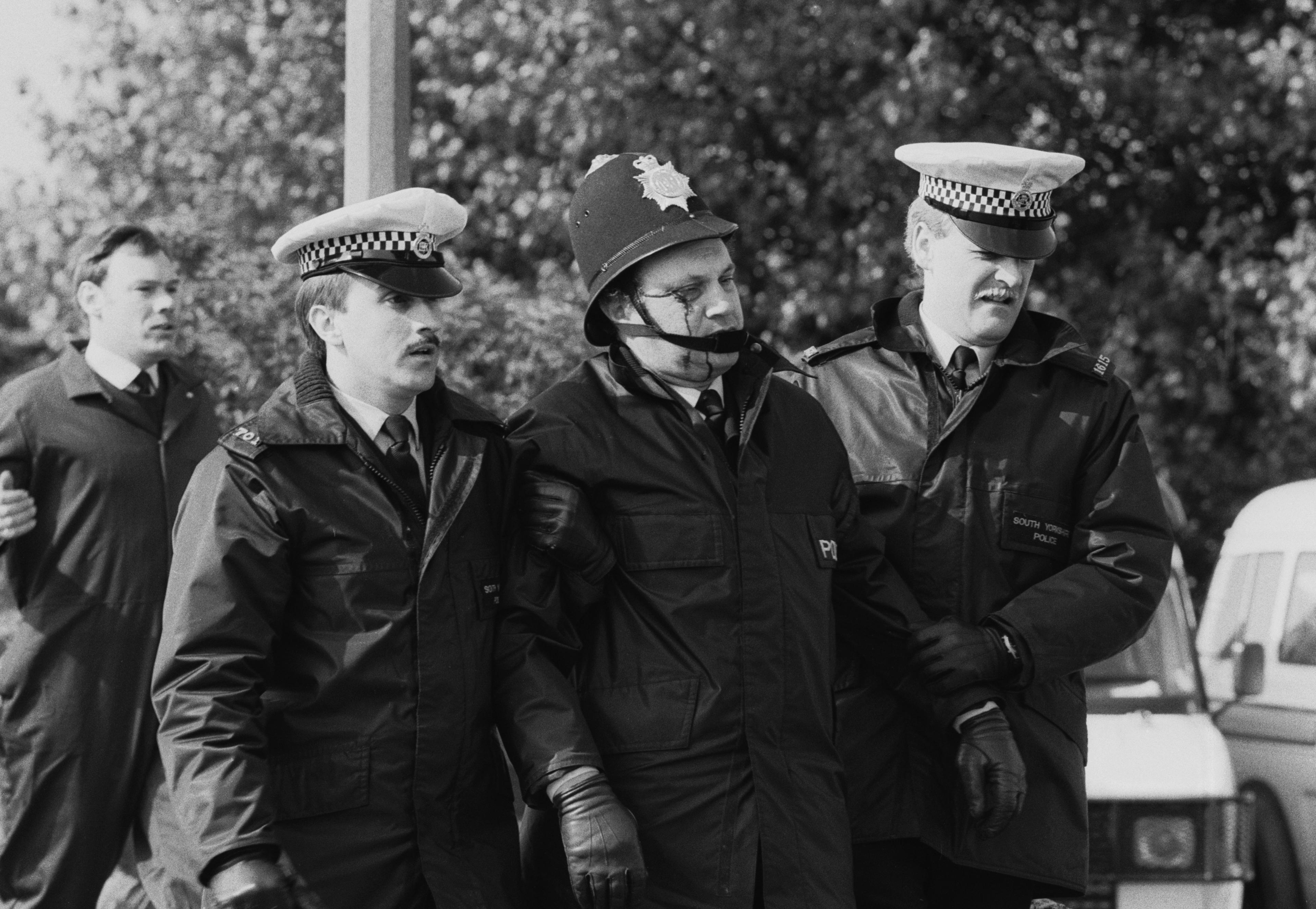
The new files released by the Home Office detail how 1,391 police officers were injured during the year long strike
But Nicholas Jones, who covered the strike as the BBC's industrial correspondent, said: "These documents really open the window on what the government and the police were thinking in 1985.
"There is no sign of any feeling of remorse in these files, in fact the police are quite dismissive about the event".
The files were released after Ms Rudd ruled out holding an inquiry into the so-called Battle of Orgreave..
Home Secretary Amber Rudd explains in October 2016 why no inquiry will be held into the so-called "Battle of Orgreave"
In June 1984 thousands of police and striking miners clashed violently at the Orgreave coking plant in South Yorkshire.
South Yorkshire Police has been criticised for how they conducted themselves during the incident, and it has been claimed the force used the same tactics on the Liverpool fans in the aftermath of the Hillsborough disaster.
"I find it worrying that there were immediate efforts from the very top of government to shut down any enquiry into the miners strike", said Labour MP Andy Burnham who has campaigned on behalf the Hillsborough families.
"The events at Orgreave and Hillsborough can't be separated. We can't have the full truth about Hillsborough until we also know what happened four years earlier".
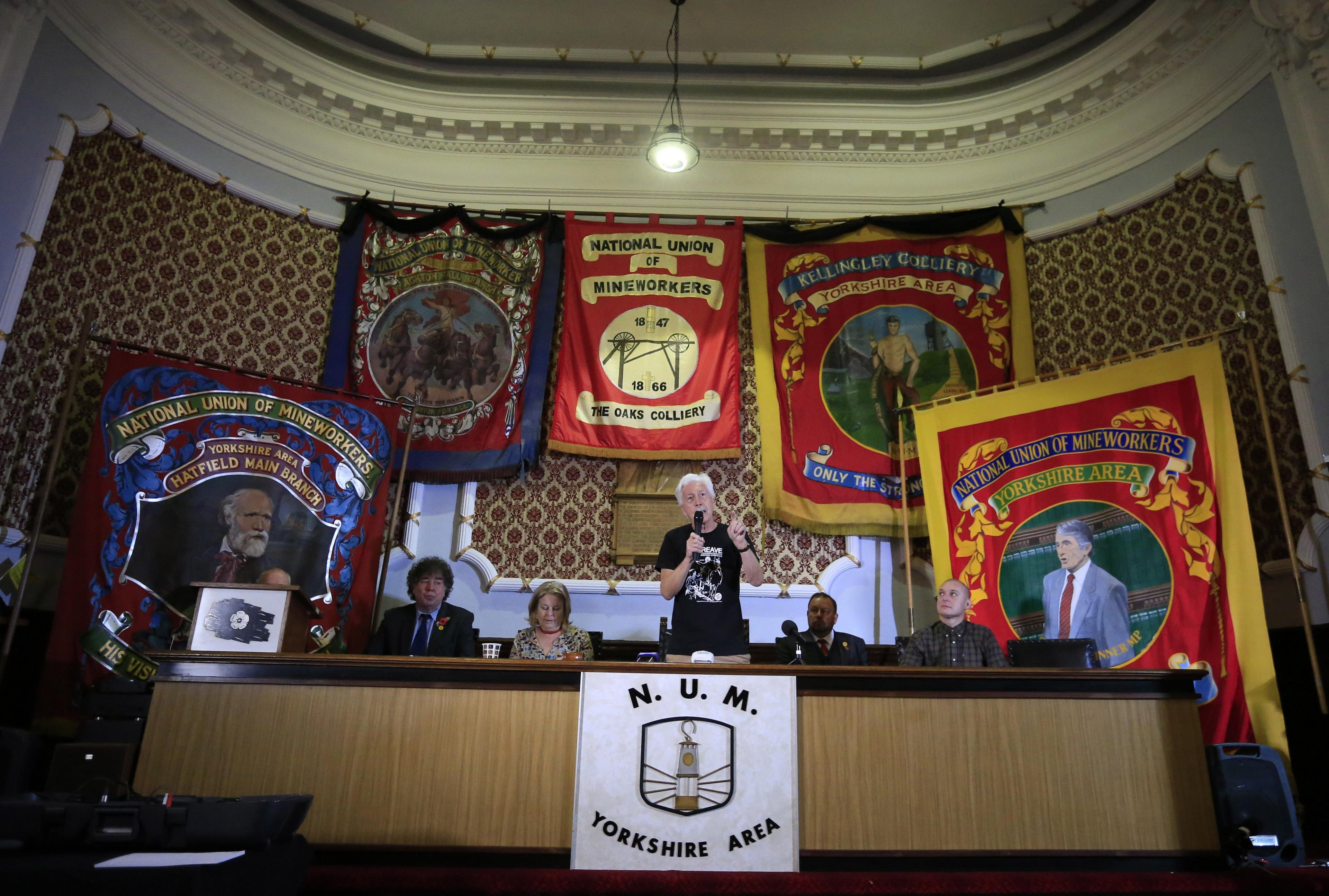
Campaigners in South Yorkshire say without an inquiry into what happened at Orgreave during the miners' strike, some communities will never have confidence in the police
There are 15 Home Office files still to be passed to be the National Archive, and its understood the South Yorkshire force is yet to publish 65 files connected with its actions during the strike.
A Home Office spokesman said: "The Home Secretary's decision that there will no inquiry into the events at Orgreave was made after careful consideration of the key purposes of an inquiry and, critically, taking into account how the policing landscape has changed fundamentally since 1984 at all levels.
"There would be very few lessons for the policing system today to be learned from any review of the events and practices of three decades ago."
- Published31 October 2016
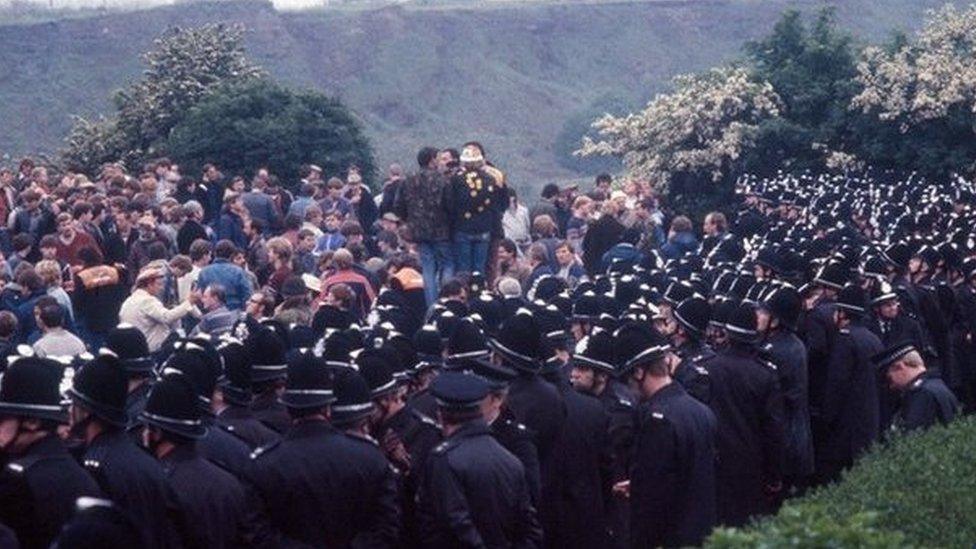
- Published11 December 2016

- Published12 June 2015
